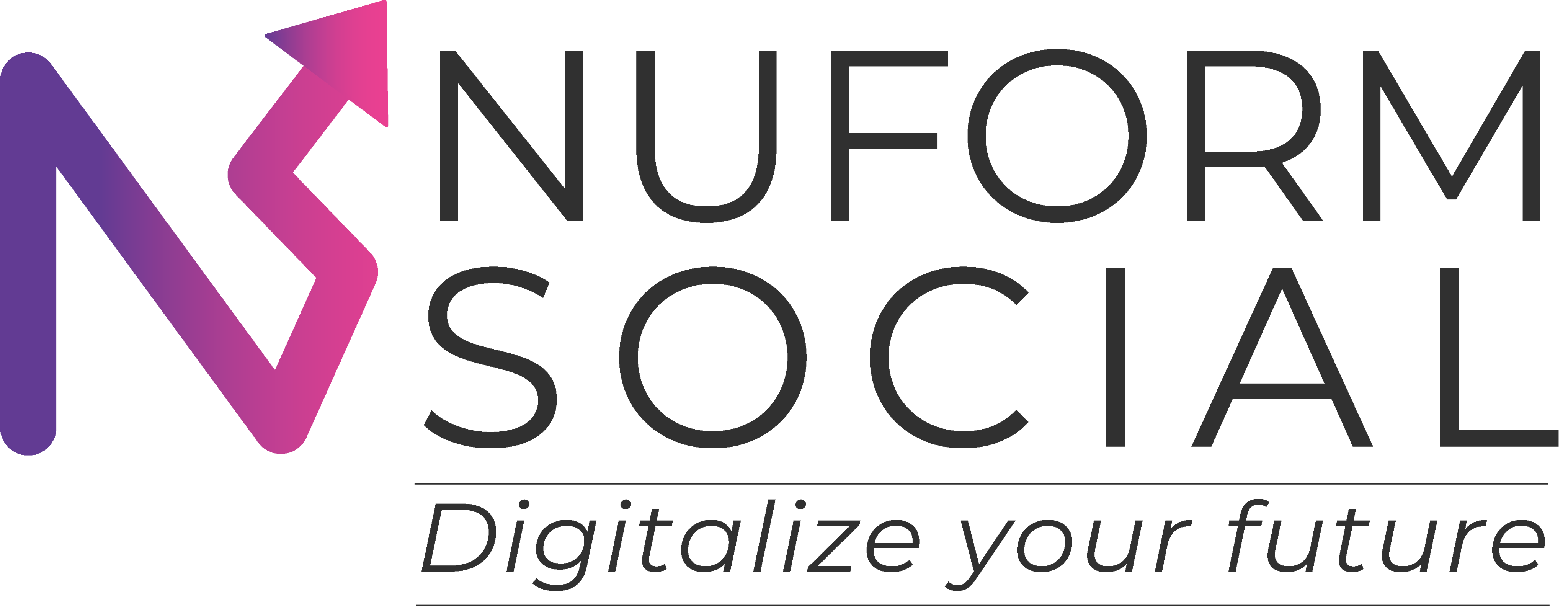What the World Is Searching For in 2025: Top Google Keywords and Questions
In today’s digital-first world, understanding what people search for on Google provides more than just curiosity-satisfying data—it unlocks insights into global behavior, interests, and intent. From entertainment and current events to technology and daily necessities, search queries reflect what truly matters to individuals around the world.
Google processes billions of searches every day, making it a real-time mirror of consumer needs, emerging trends, and popular topics. Whether you’re a content creator, digital marketer, SEO strategist, or business owner, tapping into these search trends can help you align your messaging with what people are actually looking for.
This guide explores the most searched keywords and questions on Google in 2025—both globally and within the United States. You’ll discover which terms dominate search engines, the questions people ask most frequently, and what these patterns reveal about online behavior. We’ll also share actionable insights that you can apply to your SEO, content planning, and digital marketing strategies. If you’re looking to stay relevant in an ever-changing online landscape, this data-driven overview is your starting point.
The Most Searched Thing on Google in 2025
In 2025, the most searched keyword on Google globally is “YouTube,” attracting a staggering 1.38 billion monthly searches. This reinforces the ongoing dominance of video content as the preferred medium for entertainment, education, and news consumption. Whether users are looking for music videos, how-to guides, or streaming live events, YouTube remains the go-to destination.
What’s particularly striking is the tie for second place—“ChatGPT” and “Facebook,” each receiving 618 million monthly searches. The rapid ascent of ChatGPT, an AI-driven conversational assistant, signals a major shift in how users interact with the internet. Meanwhile, Facebook’s continued popularity shows that social networking still holds massive global appeal, despite evolving competition and shifting demographics.
This top-three list highlights two dominant digital trends: the growing adoption of AI tools and the resilient demand for video and social platforms. For digital marketers and content creators, this means optimizing for visibility on platforms like YouTube and integrating AI-driven tools into content strategies can offer a competitive edge. Staying aligned with what users actively search for is critical to maintaining relevance and reach in 2025 and beyond.
Global Search Trends: Top 25 Keywords in the World
The top 25 most searched keywords on Google in 2025 provide a compelling look at what users across the globe care about. Here’s a snapshot of the top entries:
Rank | Keyword | Monthly Searches |
1 | YouTube | 1.38B |
2 | ChatGPT | 618M |
3 | 618M | |
4 | WhatsApp Web | 506M |
5 | 414M | |
6 | 414M | |
7 | Translate | 414M |
8 | Amazon | 338M |
9 | Gmail | 338M |
10 | Weather | 338M |
11 | Cricbuzz | 277M |
12 | Google Translate | 277M |
13 | Traductor | 277M |
14 | Clima | 226M |
15 | Ind vs Eng | 226M |
16 | Restaurants | 226M |
17 | Canva | 151M |
18 | Google Maps | 151M |
19 | Hotels | 151M |
20 | Maps | 151M |
21 | Restaurants Near Me | 151M |
22 | 151M | |
23 | Real Madrid | 124M |
24 | Twitter (X) | 124M |
25 | Sarkari Result | 124M |
Dominant Categories:
- Social Media & Messaging: Facebook, Instagram, WhatsApp, Twitter (X)
- Utility & Information Tools: Google Translate, Gmail, Weather, Maps
- Commerce & Services: Amazon, Hotels, Restaurants
- Content Consumption: YouTube, Cricbuzz
Takeaway: Global search behavior in 2025 leans heavily toward platforms that enable connection, consumption, and convenience. Users are seeking fast information, entertainment, and services. For businesses and marketers, aligning content with these utility-focused and entertainment-driven interests is critical.
The Top 25 Most Googled Questions in the World
Searches phrased as questions reveal a lot about people’s real-time concerns, curiosity, and intent. The top 25 most Googled questions globally in 2025 highlight recurring themes:
Top Question Searches (Sample):
- What to watch – 6.12M
- What time is the Super Bowl – 5M
- What is my IP – 2.74M
- Who won the Super Bowl 2025 – 2.74M
- When is Easter 2025 – 2.24M
- What time is it – 1.5M
- How many weeks in a year – 1.22M
- What is DEI – 1.22M
- How many ounces in a cup – 673K
- How to screenshot on Mac – 673K
Themes Identified:
- Entertainment & Events: Super Bowl timing, Easter, Oscars
- Practical Info: Time, calendar dates, measurements
- Tech Guidance: Screenshots, account deletion, device help
- Curiosity & Definitions: “What is DEI?”, “What is USAID?”
Why It Matters:
These questions reveal high interest in timely, instructional, and informative content. For content creators and SEOs, answering such questions directly with clear formatting (e.g., bullet points, FAQs, schema markup) increases chances of landing featured snippets or voice search results.
Pro Tip: Create blog content or landing pages that begin with these question formats. It’s a proven method to capture search intent and improve CTR.
Search Behavior in the U.S. – Top 25 Keywords
Search behavior in the United States shares some similarities with global trends but also reflects local interests and seasonal behaviors.
Rank | Keyword | Monthly Searches (U.S.) |
1 | YouTube | 151M |
2 | Amazon | 124M |
3 | 101M | |
4 | 55.6M | |
5 | Wordle | 55.6M |
6 | Gmail | 45.5M |
7 | Super Bowl 2025 | 45.5M |
8 | ChatGPT | 30.4M |
9 | Weather | 30.4M |
10 | Walmart | 24.9M |
… | … | … |
Key Observations:
- Event-Driven Searches: The Super Bowl and holidays trend high.
- Shopping & Retail: Amazon, Walmart, eBay dominate due to consumer habits.
- Utility-Based Queries: Weather, calculator, USPS tracking indicate the search for immediate needs.
- Content Trends: “Wordle” remains a pop culture favorite, reflecting the influence of games and daily trends.
What This Means:
U.S. searchers display a strong preference for real-time, convenience-based content. Marketers should align U.S.-targeted content calendars with seasonal events, national holidays, and consumer behavior patterns to better capture intent.
The Top 25 Most Googled Questions in the U.S.
U.S.-based users tend to ask highly contextual, seasonal, and event-driven questions. The top queries for 2025 reflect curiosity about holidays, schedules, and practical life matters.
Top Question Searches in the U.S. (Sample):
- What time is the Super Bowl – 5M
- What to watch – 2.74M
- Who won the Super Bowl 2025 – 2.24M
- When is Easter 2025 – 1.22M
- What is DEI – 673K
- How many ounces in a cup – 450K
- How tall is Kendrick Lamar – 450K
- How to screenshot on Mac – 450K
- Is PlayStation Network down – 550K
- What channel is the Super Bowl on – 1.22M
Themes That Emerge:
- Entertainment & Sports: Super Bowl dominates several question variations.
- How-Tos & Tutorials: Many “how to” questions focus on technology or lifestyle (e.g., screenshots, measurements).
- Holidays & Observances: People ask “when” questions tied to Easter, Presidents Day, and Ramadan.
Takeaway for Marketers & Creators:
If you serve a U.S. audience, capitalize on recurring events (like the Super Bowl, holidays, taxes). Providing quick answers to trending questions can help your content show up in featured snippets or Google’s “People Also Ask” box. Timeliness and relevance are essential for tapping into these high-volume search queries.
Key Takeaways for Content Creators and Marketers
Analyzing top search terms and questions offers real-world insights into how people use Google — and what they’re actively seeking. Here’s what marketers and creators can learn:
1. Prioritize Utility and Convenience
Searches for tools like Gmail, Translate, and Google Maps highlight the demand for solutions and speed. Content that simplifies complex topics, offers quick access, or provides step-by-step help is more likely to gain traction.
2. Video and AI Are Dominating the Landscape
“YouTube” and “ChatGPT” leading global search charts shows that visual content and AI tools are reshaping user behavior. Video content, AI-related tutorials, and product comparisons will continue to perform well in 2025 and beyond.
3. Answer Common Questions
From “What time is the Super Bowl?” to “How many ounces in a cup?”, millions of people search in question format. This creates an SEO opportunity—optimize for these queries with headers, FAQs, and schema markup to earn position-zero rankings.
4. Localize and Seasonalize Content
U.S. queries show a preference for seasonal trends (e.g., Valentine’s Day, tax deadlines) and location-based searches (e.g., “restaurants near me,” “USPS tracking”). Use localized SEO and timely publishing to increase visibility.
5. Align with Search Intent
Understanding whether users are looking to buy, learn, watch, or do helps guide content format. For example:
- Informational = Blogs, guides, FAQs
- Transactional = Product pages, reviews
- Navigational = Landing pages, directories
Final Tip: Use search data not just to target keywords, but to understand your audience’s mindset. This is the key to crafting content that informs, engages, and converts.
Most Searched Questions in the U.S.
The most Googled questions in the U.S. reveal what’s on the minds of everyday Americans—from event times to technical help and cultural understanding. In 2025, queries like “What time is the Super Bowl?” and “How to delete Facebook account?” topped the charts, showing that people turn to Google as their first stop for real-time information and practical guidance.
Noteworthy Questions Include:
- “What is DEI?” — reflecting increased awareness around diversity and inclusion
- “When is Valentine’s Day?” — indicating seasonal curiosity
- “How to screenshot on Mac?” — showcasing frequent technical searches
Insight:
Many of these questions are recurring (holidays, tax season, sports events) or evergreen (tech tutorials, measurement conversions). This makes them valuable content opportunities for creators and brands looking to attract organic traffic consistently.
Pro tip:
Creating content that answers common, U.S.-centric questions—and updating it annually for freshness—can keep your site ranking year after year. Whether it’s through blog posts, FAQ pages, or how-to videos, this type of content taps into high user intent and drives steady engagement.
Categories of Keywords That Dominate in 2025
The top Google searches in 2025 fall into distinct categories that reflect evolving digital behaviors and needs:
1. AI & Technology
Searches like “ChatGPT,” “Translate,” and AI-related questions show how users are integrating advanced tech into daily life. People want help understanding and using these tools efficiently.
2. Entertainment & Events
“YouTube,” “Super Bowl 2025,” “Grammys,” and “Wordle” demonstrate the dominance of cultural moments and on-demand entertainment. Event-based search spikes drive massive traffic in short periods.
3. E-commerce
“Amazon,” “Walmart,” and “Flipkart” rank high due to consumer shopping habits. People are increasingly looking for deals, delivery updates, and product comparisons online.
4. Communication Tools
“Gmail,” “WhatsApp,” and “Instagram” continue to dominate, proving that users regularly search for access points, login help, and app-related queries.
5. Everyday Utilities
Practical tools like “Weather,” “Maps,” “Speed test,” and “Calculator” underscore the functional role of Google in everyday life.
Why it Matters:
Each category represents a different user intent:
- Navigational: Going directly to a platform or brand
- Informational: Seeking knowledge or help
- Transactional: Ready to purchase or take action
Understanding these categories helps shape content strategy, product development, and SEO priorities.
What This Means for SEO & Content Strategy in 2025
The search trends of 2025 paint a clear picture of how people use Google to fulfill immediate needs, satisfy curiosity, and interact with brands. For businesses and creators, this offers strategic direction.
For Bloggers and Content Creators:
- Focus on question-based content. Use formats like “how-to,” “what-is,” or “when-is” to align with user queries.
- Add FAQ schema markup to increase chances of appearing in featured snippets and “People Also Ask” sections.
For Businesses:
- Ensure you’re ranking for navigational terms, like your brand or product name.
- Pay attention to seasonal spikes (e.g., “tax deadlines,” “holiday sales”) and optimize content accordingly.
For eCommerce Brands:
- Optimize for category-level terms such as “food near me,” “affordable laptops,” or “best smartphone 2025.”
- Build product guides, comparison blogs, and localized landing pages that reflect search demand.
For News and Media Outlets:
- Capitalize on live events. Write about breaking stories or upcoming cultural moments like the Oscars or major sports tournaments.
- Use trending topics to generate real-time traffic spikes and social shares.
Bonus Tip:
Create an editorial calendar around known search patterns—like tax season, Valentine’s Day, or Black Friday—to consistently attract traffic and stay relevant throughout the year.
How to Discover What People Search for in Your Niche
Staying ahead of search trends starts with smart keyword research. Whether you’re in fitness, tech, beauty, or finance, understanding what your audience types into Google is key.
Here’s how to start:
- Enter a broad seed keyword related to your industry (e.g., “home decor,” “crypto,” “baby food”).
- Use keyword tools that allow location filters to uncover region-specific interests.
- Apply the “Questions” filter to find high-volume informational queries like “how to start a podcast” or “what is a mutual fund.”
Look at Key Metrics:
- Search volume – indicates popularity
- Keyword difficulty – tells you how competitive the term is
- Search intent – determines if users are looking to learn, act, or buy
Stay Updated:
Trends evolve fast. Set up alerts or check trending dashboards weekly to adapt your content in real-time.
By researching and reacting to what people actually search, you position your content—and your business—as a helpful, trusted resource in the digital space.
Final Takeaways & Conclusion
Google search behavior offers a powerful glimpse into what the world cares about. From trending keywords like “YouTube” and “ChatGPT” to popular questions about holidays, tech tips, and global events—these searches reflect our collective curiosity, habits, and needs.
For marketers, creators, and businesses, understanding these trends isn’t just interesting—it’s strategic. High-volume keywords and recurring questions can guide your content, SEO, and digital outreach in meaningful ways.
Use this insight as a content compass. Align your messaging with what people are actively searching for, anticipate seasonal trends, and answer the questions your audience is already asking.
In a fast-paced digital world, staying informed is staying relevant. Keep tracking search trends, analyze them regularly, and let data-driven content fuel your long-term online success.






